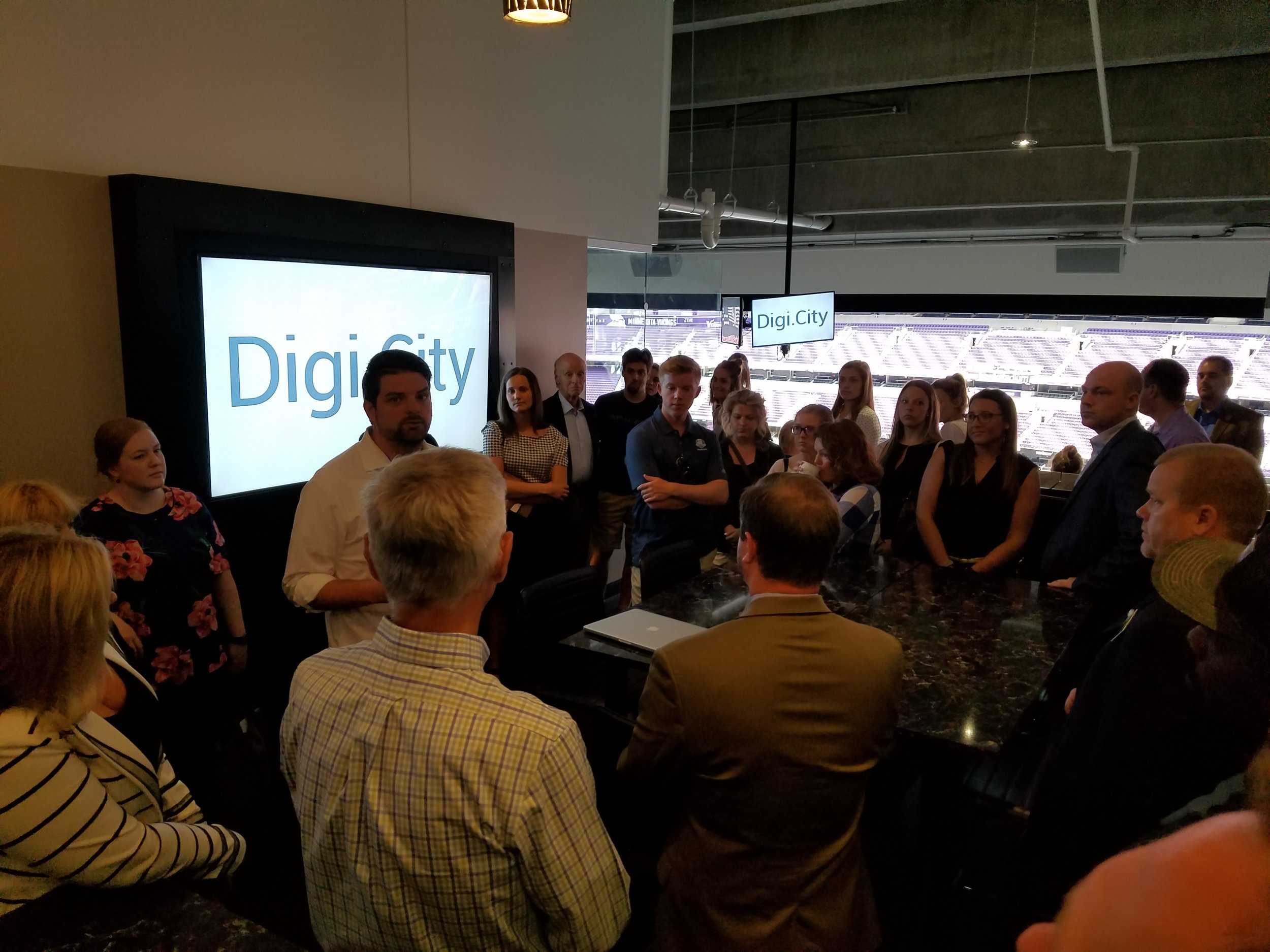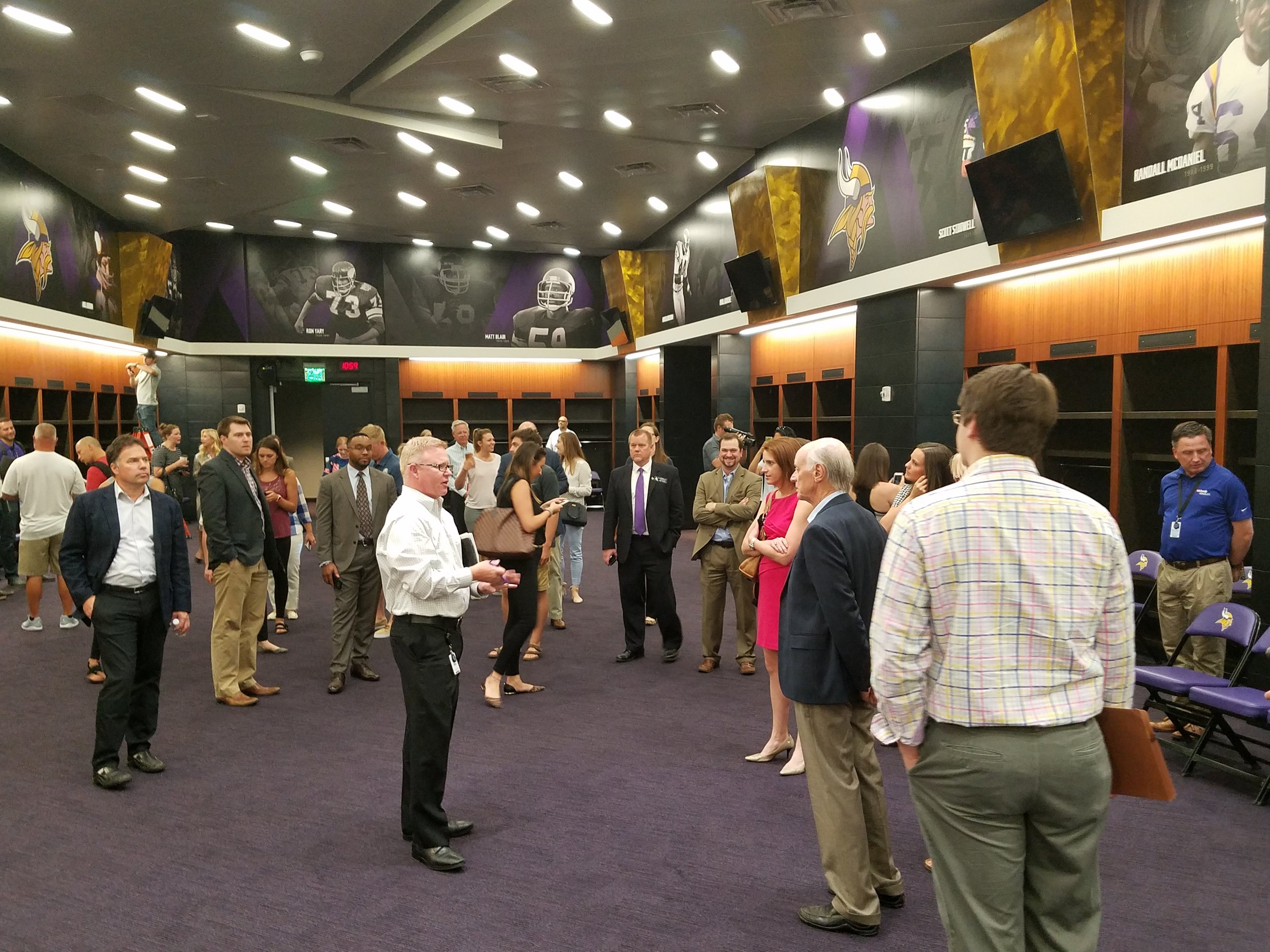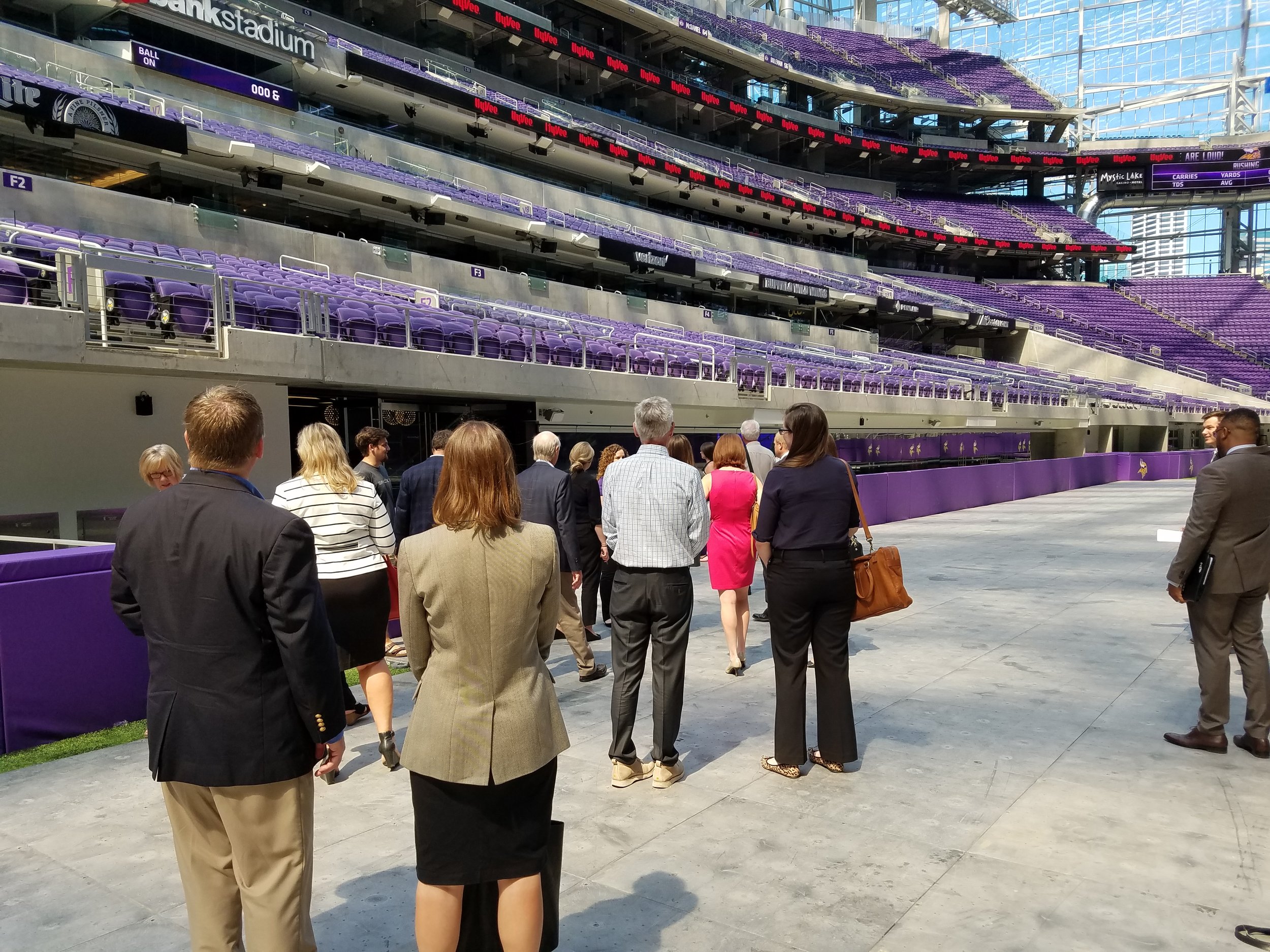Minneapolis, MN
Digi.City traveled to Minneapolis, MN on June 6 to host the latest event in its Digi.City Connects series. Our discussion focused on how the Twin Cities are leveraging next generation technology to prepare for the 2018 Super Bowl, directly engaging stakeholders involved in preparing the city for the big game. The Super Bowl is a big part of driving needed commitments to create a 21st century digital ecosystem that will better serve all residents and visitors for decades to come, not just next at next February’s game.
Speakers included Patrick Talty, General Manager, US Bank Stadium, and panelists Margaret Anderson Keliher, President & CEO Minnesota High Tech Association; Representative. Joe Hoppe (R-Chaska); and Jonathan Weinhagen – President/CEO Minneapolis Chamber of Commerce. Some of their insights are below and also in the pieceJonathan Weinhagen penned for the Minneapolis Star-Tribune, “How the Super Bowl could bring a super digital future,”
We were honored to welcome about 100 guests including Minnesota Representative Lucero, RepresentativePeterson, and Representative Jurgens as well as staff members from the offices of Senator Amy Klobuchar, Senator Al Franken, Representative Erik Paulsen, and the State Senate Majority Leader.
The Twin Cities are certainly setting the stage for a huge win in Smart Cities, regardless of who ends up on the field at the Super Bowl!
Key Messages from our Panelists:
Patrick Talty – General Manager, US Bank Stadium
"Buildings of the future will be built with technology at the core. Wi-Fi and DAS systems are embedded into U.S. Bank Stadium’s core as well as a Cisco-driven backbone which provides for all systems – security, sustainability, etc – with fiber and copper infrastructure."
" If we don’t think about integrating technology into everything we do, we will lose. If cities aren’t thinking about how to connect the stadium, we are going to lose people in our downtown area."
Margaret Anderson Kelliher – President & CEO Minnesota High Tech Association (MHTA)
"MHTA is working to make Minnesota a top technology state. Public policy lays the foundation for making it possible."
"We are only as good as our understanding of public policy’s role in rolling out technology."
"The Broadband Task Force has brought awareness to the importance of infrastructure around the state. Minnesotans want to be connected and want to be connected at higher speeds."
"The digital divide effects not just the workforce, but education. We need to keep our pedal to the floor on connecting more Minnesotans."
"Innovation, creation and awareness are key factors in the rollout of future technologies."
Rep. Joe Hoppe (R-Chaska) – Minnesota House of Representatives
" We cannot legislate faster than technology innovates. If 5G is going to be 100x faster than our current networks, how can we expect to be able to do that in the future?"
" It is necessary for government to work together at all levels to embrace technology."
"Technology infrastructure will help our urban areas, farmers in rural areas, our healthcare system, etc. Cited several examples of local companies that have benefited from better connectivity."
Jonathan Weinhagen – President and CEO Minneapolis Chamber of Commerce
"Practical applications of technology will be some of the biggest difference makers for residents. Gave the example of city services and trash pick-up."
"Connected cities embrace technology to improve experience for residents and businesses."
"If we hope to attract and retain talented entrepreneurs, the connectivity infrastructure necessary to spurring innovation will be essential."
" Infrastructure investment is the greatest economic imperative and key to our future as we drive forward to a more connected future."
"Commended private sector partnerships in the areas as a major driver of future innovation and economic growth in the area."








